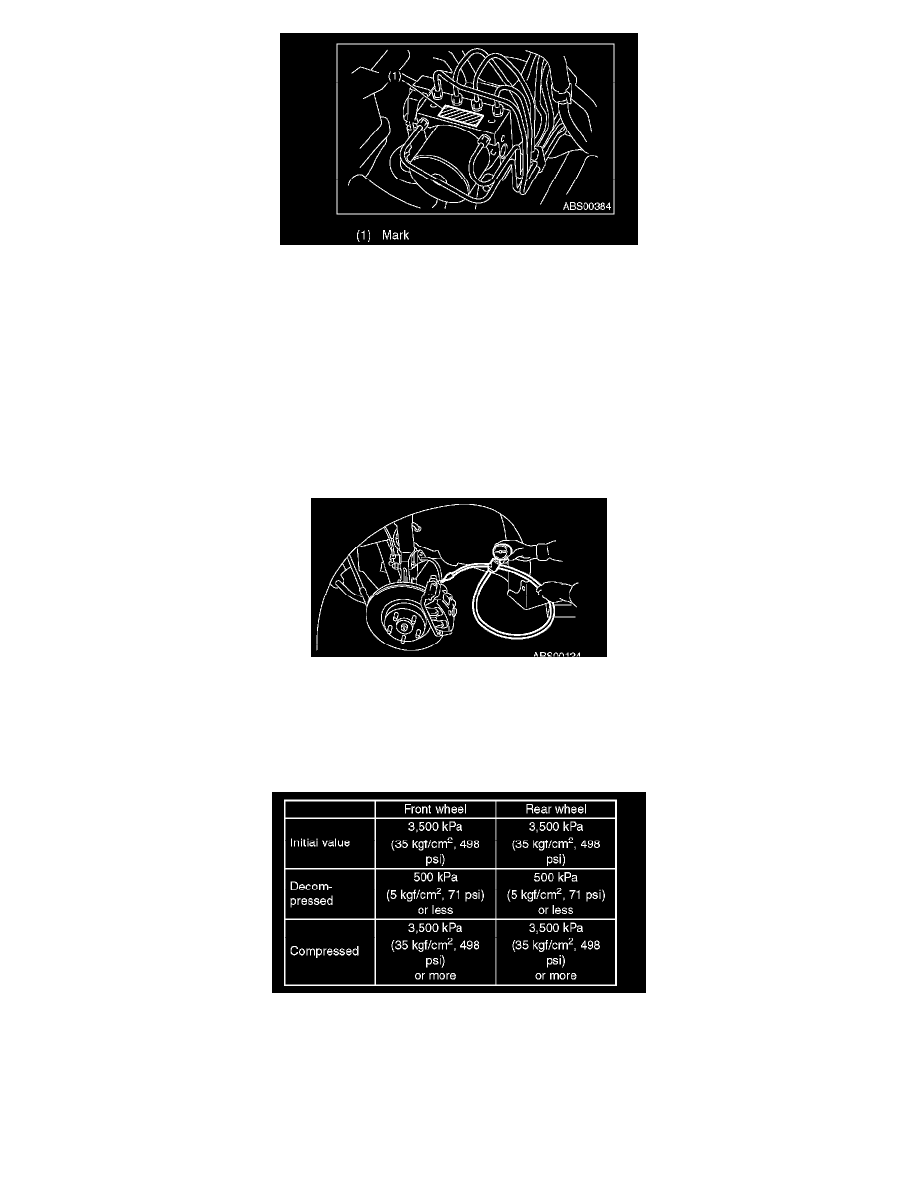Impreza WRX STI F4-2.5L DOHC Turbo (2007)

2) Check specifications of the mark with ABSCM&H/U.
CHECKING THE HYDRAULIC UNIT ABS OPERATION BY PRESSURE GAUGE
1) Lift-up the vehicle and remove the wheels.
2) Disconnect the air bleeder screws from the FL and FR caliper bodies.
3) Connect two pressure gauges to the FL and FR caliper bodies.
CAUTION:
^
Pressure gauges used exclusively for brake fluid must be used.
^
Do not employ pressure gauge previously used for transmission oil pressure since the piston seal is expanded which may lead to malfunction of the
brake.
NOTE: Wrap sealing tape around the pressure gauge.
4) Bleed air from the pressure gauges.
5) Perform the ABS sequence control.
6) When the hydraulic unit begins to work and first the FL side performs decompression, holding and compression, and then the FR side performs
decompression, holding and compression.
7) Read values indicated on the pressure gauge and check if the fluctuation of the values between decompression and compression meets the standard
values. Also check if any irregular brake pedal tightness is felt.
8) Remove the pressure gauges from FL and FR caliper bodies.
9) Remove the air bleeder screws from the RL and RR caliper bodies.
10) Connect the air bleeder screws to the FL and FR caliper bodies.
11) Connect two pressure gauges to the RL and RR caliper bodies.
12) Bleed air from the FL and FR caliper bodies.
13) Perform the ABS sequence control.
14) When the hydraulic unit begins to work, at first the RR side performs decompression, holding and compression, and then the RL side performs
decompression, holding and compression.
